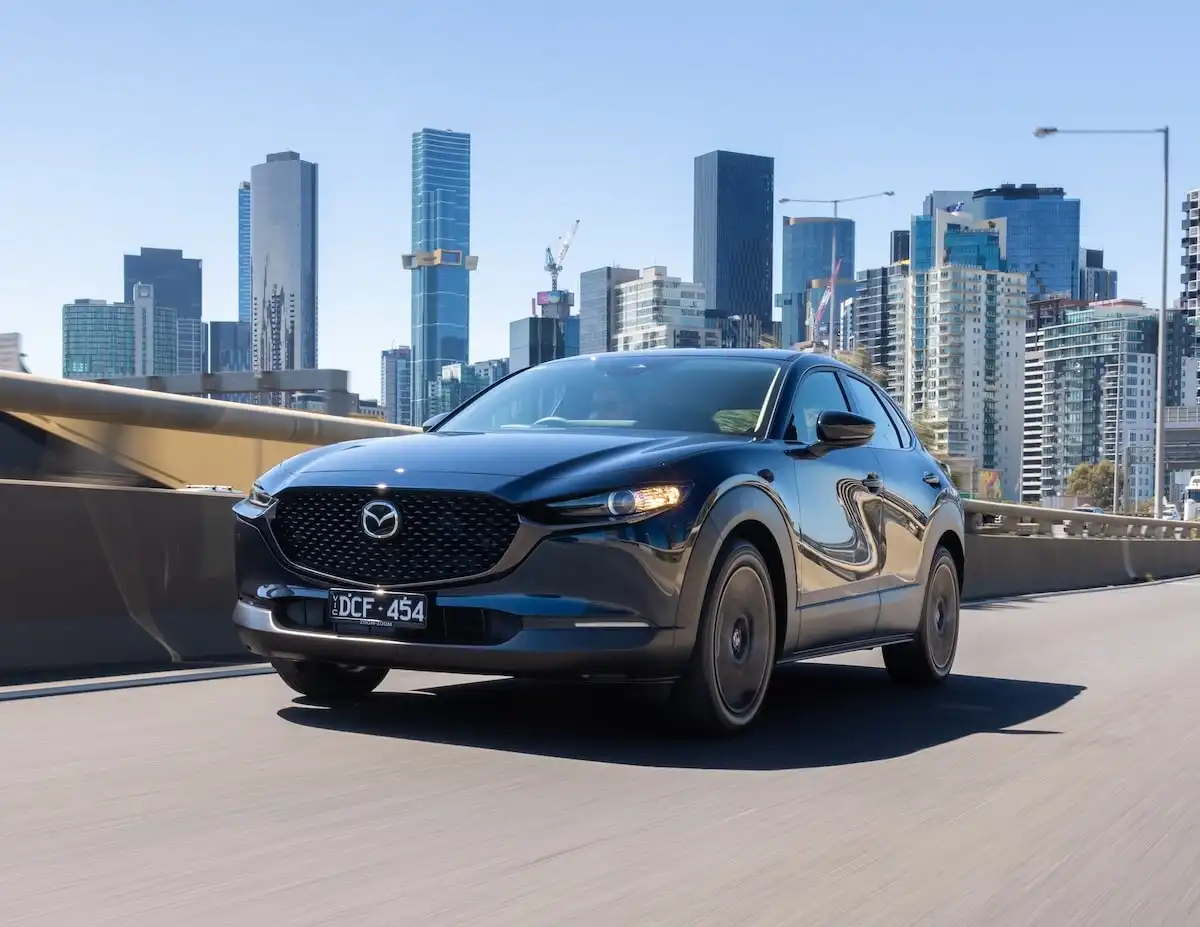When it comes to applying for a car loan, understanding a lender’s specific eligibility hurdles is a crucial part of securing vehicle finance - but what are they, how do they impact your eligibility and how can you leverage them for a successful application?
There are a lot of moving parts when it comes to securing a car loan here in Australia, so let’s talk about what influences being approved for a car loan - and on what terms.
What Factors Impact Your Car Loan Eligibility?
Your suitability for a car loan, like any other type of loan or application for a line of credit is determined by a broad range of factors.
In essence, though, they’re all used to paint a picture of just how responsible you are with your finances and how likely you are to service the car loan that you’re applying for.
Get in touch with one of our Car Buying Specialists today.
Request a quoteLenders are risk-averse by trade, meaning things that impact your loan eligibility are factors like your:
-
Credit Score & History: Your credit score and history are two of the most important factors that impact your car loan eligibility. A high credit score with evidence of meeting previous payments is a great determination of how likely you are to service your new car loan while a history of missed or late payments can be a red flag.
-
Current Income: Your current income is, of course, a huge factor in your application for a car loan here in Australia, and will help to size up your suitability for the size of the credit available to you.
-
Personal Assets: Detailing any of your valuable personal assets gives lenders a clear snapshot of your current financial standing and may help to reduce the perceived risk in your application for a car loan.
-
Employment History: Financial lenders love applicants who can demonstrate a long, stable and reliable source of income and your employment history is the best way to gauge how solid your income is to repay the terms of your car loan.
-
Outstanding Debts & Liabilities: Detailing any of your unpaid debts is essential information for a lender when processing your car loan eligibility, identifying any outstanding debts that will be factored into the terms of your loan.
-
Size of the Deposit: Having a substantial deposit up your sleeve is a great way to increase the chance of securing your car loan as it reduces the risk side of the equation for the lender.
-
Type of Vehicle: Finance providers can alter the terms of their car loans depending on the make, model and age of the vehicle, in the case of second-hand cars.
-
Debt-to-income Ratio: With the above information provided, lenders will often make an informed judgment call on your eligibility for a car loan based on your debt-to-income ratio, which illustrates your capacity to service the terms of your loan.
-
Loan Terms and Amount Financed: Your eligibility for a car loan can often increase as the size of the loan, or the duration of that loan decreases, with shorter terms being the most favourable in the eyes of the lender.
What Makes You Eligible For a Car Loan?
Here in Australia, there are a few basic factors that make you eligible for a car loan, with things like like your age, income, assets and/or liabilities employment history, credit score and expenditure information all playing key roles in your application getting over the line.
-
Age (over 18, under 75)
-
Citizenship or Visa status
-
Proof of Address
-
Proof of Income
-
Type of Employment (full-time, part-time, casual & contracting)
-
Employment History
-
Credit Score
-
Details of Personal Assets
-
Details of Outstanding Debts & Liabilities
-
Expenditure Details (typically monthly)
-
Relationship status and/or Dependents
-
Size of Deposit
-
Vehicle and insurance information
For a comprehensive overview of exactly what makes you eligible for a car loan, you can read our explainer article here.
What is the Minimum Credit Score for a Car Loan?
There’s no absolute minimum credit score agreed upon by finance providers to secure a car loan, though a healthy credit score makes you a favourable candidate in the eyes of the lender.
-
Credit reports typically offer a measurement of your credit on a scale of 0-1000, with a score above 500 generally considered adequate in the eyes of a lender while a score above 650 is deemed excellent.
-
Some scales reach up to 1,200, meaning that a score of 650 is considered adequate while a score above 850 places you in the excellent category, increasing your chances of being approved and even helping to secure better terms.
-
The higher your credit score, the more likely you are to be approved for a car loan with more attractive terms, for example, lower interest rates because the lender is confident in your ability to service the car loan.
For a better look at exactly what a credit score is, what type of credit score you need for a car loan and help with how to improve your credit score click here.
How Can I Increase My Chances of Getting a Car Loan?
The most effective way to increase your chances of getting a car loan is to wipe out any outstanding debts or liabilities you may have and demonstrate a long-running history of employment and the ability to both save and service any existing loans you might have.
Some of the best ways to increase your chances of getting a car loan include:
-
Check your current credit report for any potential inaccuracies that may be hurting your score
-
Pay off any existing debts and liabilities
-
Lower your credit limit
-
Reduce the frequency of credit applications that require a ‘hard’ credit check
-
Keep credit accounts open; even if you’re not using them anymore
-
Always pay bills before their due date
-
Pay credit card balances and loan fees on time
-
Avoid changing employment frequently
-
Contact a financial expert for guidance and advice on credit and budgeting strategies
Who is Most Likely to be Approved for a Car Loan?
When it comes to being approved for a car loan, almost all Australians able to demonstrate solid evidence of their employment, ability to pay their debts on time and have a healthy credit score are likely to be approved for a car loan.
It’s also important to keep the amount of finance you’re applying for in mind, with lenders more inclined to approve a car loan if the vehicle being purchased sits within a healthy debt-to-income ratio.
What Counts as Income for a Car Loan?
Typically, a lender will ask for proof of your income in the form of two recent payslips, which illustrate your current employment status and your remuneration package - though, other revenue streams be counted as income for a car loan like:
-
Recent payslips from your employer
-
Income from investments
-
Rental income
-
Income derived from superannuation (retirees)
-
Potentially government benefits, depending on the lender’s policy
FAQ: Are Car Loans Worth It?
In many cases, car loans provide a worthwhile and practical means for Australians to buy a new car, but careful consideration of your financial situation to make a well-informed decision.
-
Affordability: If you can comfortably afford the monthly repayments without compromising your financial stability, a car loan may be worth it.
-
Interest Rates: Evaluate the interest rates offered by lenders. Lower rates make the loan more cost-effective in the long run.
-
Ownership Duration: If you plan to keep the car for an extended period, a car loan might be a good investment. However, if you prefer upgrading frequently, alternative financing methods or leasing might be considered.
-
Overall Cost: Calculate the total cost of the loan, including interest, to determine if it aligns with the car's value and your budget.
FAQ: What’s the Difference Between Unsecured & Secured Loans?
-
Secured Loans: a secured car loan is backed by the vehicle itself, which is registered to the Australian Personal Properties Securities Register (PPSR) Secured loans generally have lower interest rates due to the collateral provided, though you fail to repay, the lender can repossess the car to recover the outstanding amount.
-
Unsecured Loans: Unsecured loans do not require collateral. Lenders, in this case, rely on your creditworthiness and financial stability. As there is no asset securing the loan, unsecured loans often come with higher interest rates compared to secured loans.
FAQ: Does Everyone Get Approved for Car Finance
The short answer is no, not everyone gets approved for car finance, with eligibility for a car loan determined by things like how much you’re looking to borrow stacked up against your income, employment history, credit score and your debt-to-income ratio.
It's important to research lenders, understand their specific eligibility criteria, and work towards meeting those criteria to increase your chances of approval for car finance in Australia.
Request a Quote
If you’re looking to upgrade to a new car, be sure to reach out to one of our car-buying experts who can help find you the best possible price and even help you secure vehicle finance for your new car.
Get in touch with one of our Car Buying Specialists today.
Request a quote









